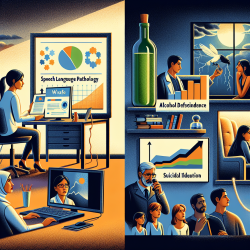Here are the key findings from the study and their implications for practice:
1. Emotional Impact of the Transition
Patients reported mixed feelings about the switch to online therapy. While some felt reassured and curious, others experienced skepticism and a sense of precariousness. Understanding these emotional responses can help practitioners provide better support during transitions.
- Positive feelings: reassurance, trust, curiosity
- Negative feelings: skepticism, resignation
2. Privacy and Personal Space
Showing and seeing private spaces during online sessions evoked varied reactions. Some patients felt indifferent or comfortable, while others experienced embarrassment. This highlights the importance of addressing privacy concerns and creating a safe online environment.
- Comfort and indifference
- Embarrassment and discomfort
3. Effectiveness of Online Therapy
Most patients did not find significant new topics emerging in online therapy, but those who did mentioned intimate themes such as sexuality and past abuse. It's crucial to create an environment where patients feel comfortable discussing sensitive topics.
- New topics: intimacy, past abuse
- Challenges: discussing sensitive themes online
4. Therapeutic Relationship
The quality of the therapeutic relationship was perceived positively by many patients. However, some reported emotional detachment and lack of corporeality. Maintaining a strong therapeutic alliance is essential, even in a virtual setting.
- Improved quality: less worry, more intimacy
- Challenges: emotional detachment, lack of corporeality
5. Group Dynamics
Group therapy patients noted changes in group dynamics and leadership. Communication issues and emotional detachment were common concerns. Adapting group therapy techniques for online settings can help address these challenges.
- Communication issues and emotional detachment
- Changes in group leadership and dynamics
These findings underscore the importance of being attuned to patients' experiences and continuously adapting our practices to meet their needs. Further research and training can help practitioners navigate the complexities of online therapy effectively.
To read the original research paper, please follow this link: The transition to online psychotherapy during the pandemic: a qualitative study on patients’ perspectives.










